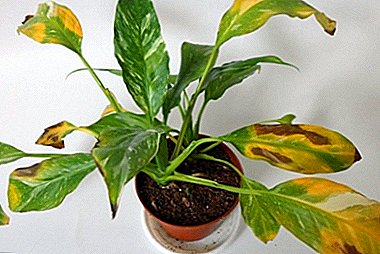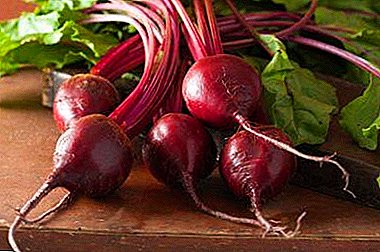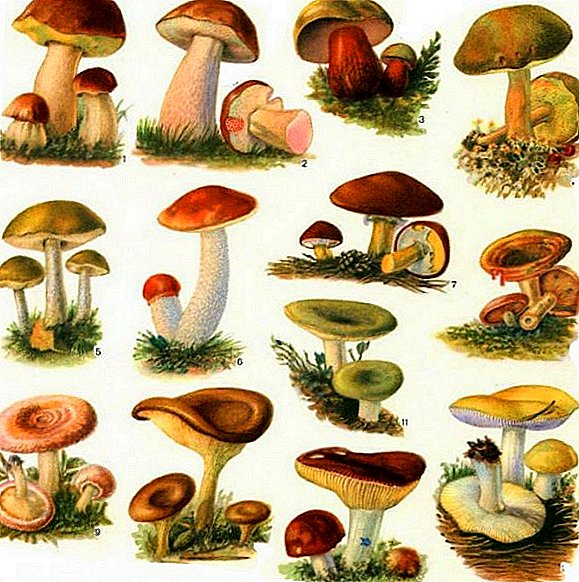
Cilantro and basil are spicy fragrant herbs that can be easily grown not only at the dacha, but even at home on the windowsill.
Basil is one of the beneficial plants among the greenery. It contains vitamins A, B, C, PP, as well as essential oils: eugenol, linalool, estragol and limonene.
Cilantro toxins, harmful cholesterol from the body, lowers blood sugar levels and normalizes blood pressure. This green helps to quickly digest heavy foods, improves digestion and helps to improve well-being during depression.
Cilantro can be used for flatulence and gas formation. Consider how they differ, what is their benefit and harm, how they can be applied.
Is it the same or not?
Cilantro (coriander) and basil are completely different, although they have a lot of common herbs. Cilantro (coriander) is an annual plant of the genus Coriander, of the Umbrella family. Coriander leaves are called cilantro.. Basil also belongs to the family of Lambs.
Why are plants confused?
Both plants are spicy herbs often used in cooking. They have a bright rich spicy taste, so they are sometimes confused with each other.
What is different in appearance?
Basil is a shrub up to 80 centimeters high. Leaves up to three centimeters long have a color from light green to dark purple. At the top of the plant leaves form inflorescences up to 35 centimeters long. The stalk of coriander reaches a height of 70 centimeters. Coriander leaves are shaped like parsley. The fruit is a solid beige or brown seed. Sometimes you can confuse the green leaves of basil and cilantro.
How to distinguish them? The leaves of cilantro are not the same along the stem: the lower ones have scapes, and the upper ones grow right on the stem. Basil leaves are rough and ovoid.
Use and chemical composition
Basilica
 The stalk and leaves of basil contains camphor essential oil (from 3.5 to 5%). Basil also contains vitamin C (18 mg per 100 g of product), A (3.15 mg), calcium (295 mg), potassium (177 mg), and magnesium (64 mg).
The stalk and leaves of basil contains camphor essential oil (from 3.5 to 5%). Basil also contains vitamin C (18 mg per 100 g of product), A (3.15 mg), calcium (295 mg), potassium (177 mg), and magnesium (64 mg).
- It has a bactericidal effect, helps the immune system to fight viruses and bacteria.
- It prevents the appearance of diseases of the oral cavity (strengthens the teeth, gums, eliminates unpleasant odor).
- Used as an expectorant for respiratory illnesses.
- Applied in the treatment of acute and chronic heart failure.
- Heals the mucous membrane of the stomach and intestines in chronic gastritis and colitis.
- In cosmetology, essential oil of basil is used as an antiseptic and anti-inflammatory agent for eczema, dermatitis and acne. Basil also helps strengthen hair follicles, preventing hair loss.
We offer to watch a video about the beneficial properties of basil:
Coriander
Cilantro fruits contain essential oil, the main components of which are linalool (up to 80%) and geraniol (up to 5%). Cilantro leaves also contain vitamin A (337 µg per 100 g of the product), K (310 µg) and C (27 mg), as well as potassium (521 mg), calcium (67 mg), phosphorus (48 mg).
- It is used in the treatment of diseases of the gastrointestinal tract. Cilantro essential oil has a choleretic, analgesic effect.Coriander fruits have a laxative, antispasmodic effect, stimulate digestion and increase appetite.
- Used as an expectorant for diseases of the upper respiratory tract.
- Cilantro decoction has bactericidal properties, strengthens the gums and reduces their bleeding.
- Reduces pressure, increases blood clotting.
- It is used in the treatment of infectious diseases, especially accompanied by diarrhea.
- Cleans the blood from heavy metals, reduces the level of "bad" cholesterol and blood sugar, is part of the anthelmintic drugs.
- Due to its diuretic effect, cilantro helps reduce swelling.
- A decoction of coriander has a sedative effect, is used for insomnia, epilepsy, depression.
- Crushed fresh cilantro greens soothes the skin after burns, heals wounds, reduces allergies. Broth process skin affected by fungus and eczema.
- Green cilantro increases potency, contributes to the prevention of prostatitis.
We offer to watch a video about the beneficial properties of cilantro:
Impact on the body
Basil, activating brain activity, increases the overall tone of the body. Coriander, especially its fruits, has a sedative effect. However, both plants can be equally successfully used in the treatment of most diseases of the gastrointestinal tract. Cilantro due to the more saturated composition has a wider range of positive effects.
Contraindications
Contraindications are the same for cilantro and basil.:
- pregnancy, breastfeeding, children up to three years;
- bleeding disorders;
- pathologies of the cardiovascular system (ischemic heart disease, heart attack);
- endocrine pathologies (diabetes mellitus).
Adverse effects
Due to the content in the composition of mercury compounds, basil is dangerous in large quantities. It is not recommended to be used continuously for more than two weeks. Cilantro is a safer plant, with its long-term use, only stomach pain and diarrhea are possible. Both plants are not recommended for use in large quantities in the presence of thrombophlebitis, varicose disease. Despite the obvious benefits of basil and cilantro, we must not forget that any medicinal herbs have a harmful effect during overdose.
Are herbs interchangeable?
 Both basil and cilantro are combined with all green vegetables. They replace each other in all summer vegetable salads, in soups, in sauces, as well as in cold appetizers and meat dishes. Basil and cilantro are completely interchangeable when preparing pesto sauce (add chopped garlic, nuts, olive oil to the chopped greens and grind to a paste).
Both basil and cilantro are combined with all green vegetables. They replace each other in all summer vegetable salads, in soups, in sauces, as well as in cold appetizers and meat dishes. Basil and cilantro are completely interchangeable when preparing pesto sauce (add chopped garlic, nuts, olive oil to the chopped greens and grind to a paste).
Unlike basil, coriander seeds are added to the dough when baking bread and pastry. Coriander is widely used in the preparation of pickles, marinades, kvass and beer. Seeds prolong the freshness of the meat. Basil has an astringent, slightly bitter taste, and cilantro has a characteristic, specific flavor that not everyone loves. In addition, purple basil has a sharper and stronger taste, unlike green. This should be considered when replacing basil with cilantro in dishes.
Is it possible to combine?
Basil and cilantro can be combined in such dishes as vegetable salads and side dishes, soups, sauce for meat and pasta. This will enrich the taste and increase the benefit of the dish.
If the bright smell of plants is unpleasant to you, and you do not want to eat them fresh, you can heat the cilantro or basil, that is, boil it in the soup, fry with meat.
but you need to remember that both plants have a fairly rich spicy taste, they are able to muffle the main taste of the dish, therefore, they can not overdose.
Basil and cilantro are unique spicy herbs with a memorable taste. Due to the rich content of essential oils, tannins, vitamins and trace elements, these herbs are used in folk medicine, cosmetology and cooking.












